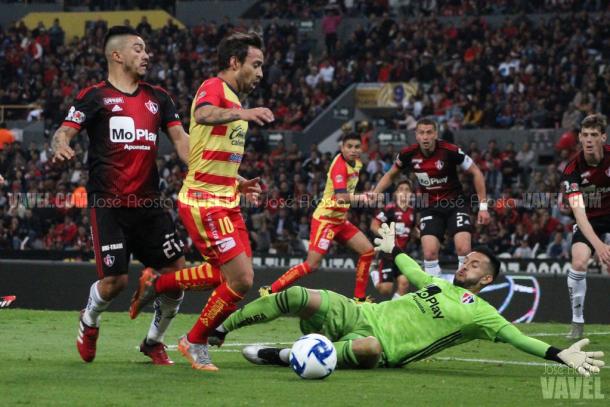Microsoft-Activision Deal: FTC's Appeal And Its Implications For The Gaming Industry

Table of Contents
The FTC's Case Against the Microsoft-Activision Merger
The FTC's core argument centers on the assertion that the Microsoft-Activision merger would substantially lessen competition within the gaming industry, creating a monopoly and harming consumers. Their concerns are multifaceted:
-
Concerns about reduced competition, specifically regarding Call of Duty: The FTC argues that Microsoft's acquisition of Activision Blizzard, and specifically the Call of Duty franchise, would give Microsoft an unfair advantage, potentially leading to higher prices, reduced quality, or the removal of Call of Duty from competing platforms like Sony's PlayStation. This is a key concern given Call of Duty's immense popularity and market share.
-
Potential for Microsoft to leverage its ownership of Activision Blizzard to harm competitors like Sony PlayStation: The FTC alleges that Microsoft could use its control over Activision Blizzard's games, including Call of Duty, to strategically disadvantage its rivals, potentially making it difficult for them to compete effectively. This could involve exclusive deals, delayed releases, or inferior versions of games on competing consoles.
-
Allegations of anti-competitive practices and stifling innovation within the gaming market: The FTC suggests that the merger would reduce innovation and choice for gamers by consolidating power in the hands of a single entity. This could lead to a less dynamic and competitive gaming market overall.
-
Proposed remedies or desired outcomes: The FTC's proposed remedies might include blocking the merger entirely or demanding significant concessions from Microsoft to mitigate the anti-competitive risks, such as commitments to keep Call of Duty available on competing platforms for an extended period.
The FTC's case relies heavily on established antitrust laws, particularly those aimed at preventing mergers that significantly reduce competition. The strength of their case hinges on proving that the merger would create a substantial lessening of competition, a high bar to clear legally. However, the weaknesses could lie in proving direct, quantifiable harm to consumers, particularly given Microsoft's commitments to keep Call of Duty on PlayStation.
Microsoft's Defense and Counterarguments
Microsoft has vigorously defended the merger, arguing that it will actually benefit consumers and promote competition. Their key counterarguments include:
-
Arguments about preserving competition and consumer choice: Microsoft maintains that the gaming market is highly competitive, with numerous established players and new entrants, and that the merger will not significantly alter this landscape. They emphasize the continued availability of Call of Duty on various platforms as proof.
-
Commitments to keep Call of Duty on PlayStation and other platforms: A central part of Microsoft’s defense involves its commitment to keeping Call of Duty available on PlayStation for at least the next ten years. This commitment attempts to address the FTC’s primary concern about reduced competition and consumer choice regarding this highly popular franchise.
-
Emphasis on the benefits of the merger for game development and innovation: Microsoft highlights the potential for increased investment in game development and innovation that the merger could bring, ultimately benefiting players with better games and experiences.
-
Discussion of the wider gaming market and its competitive landscape: Microsoft presents a broader view of the gaming market, emphasizing the presence of numerous competitors beyond just Sony PlayStation, including Nintendo and numerous PC game developers and publishers.
Microsoft's defense strategy aims to demonstrate that the merger won't stifle competition and will benefit consumers. The effectiveness of this strategy depends on convincing the court that their commitments are credible and that the benefits outweigh the potential anti-competitive risks. Proposed concessions, such as extending the Call of Duty agreement beyond initial offerings, are part of their effort to satisfy regulatory concerns.
Implications for the Gaming Industry
The FTC's appeal and the potential outcomes have far-reaching implications for the gaming industry:
-
Impact on future mergers and acquisitions in the gaming sector: The outcome of this case will set a significant precedent for future mergers and acquisitions in the gaming industry. It will influence how regulatory bodies assess future deals and potentially lead to increased scrutiny and stricter guidelines.
-
Potential changes in regulatory oversight of the gaming industry: This case could lead to increased regulatory oversight of the gaming industry, potentially impacting how games are developed, distributed, and priced.
-
Effects on the pricing and availability of gaming titles: Depending on the outcome, the pricing and availability of gaming titles, especially those from Activision Blizzard, could be affected.
-
Influence on the development and distribution of games across different platforms: The deal's outcome could impact how games are developed and distributed across different platforms, potentially shifting the balance of power.
-
Long-term implications for the competitive landscape of console and PC gaming: The long-term implications could include a shift in the competitive landscape of console and PC gaming, potentially impacting market share and innovation.
The case might also lead to increased regulatory scrutiny for large tech companies in general, potentially impacting mergers and acquisitions in other sectors.
The Future of Call of Duty and Other Activision Franchises
The fate of Activision Blizzard franchises, particularly Call of Duty, is inextricably linked to the outcome of this legal battle. A successful FTC appeal could severely limit Microsoft's ability to make Call of Duty exclusive to its Xbox ecosystem. Alternatively, a favorable ruling for Microsoft could potentially lead to greater exclusivity or platform limitations in the future. The impact on other Activision Blizzard franchises, such as World of Warcraft, Candy Crush, and Diablo, remains uncertain but could be significant.
International Perspectives and Regulatory Responses
The Microsoft-Activision deal is not solely a US issue. Regulatory bodies in other countries, including the European Union and the UK, have also reviewed the merger. While some have already approved the deal under certain conditions, others continue to evaluate it. This creates the potential for conflicting decisions, highlighting the complexities of international regulatory cooperation in the tech industry. The different approaches taken by various jurisdictions demonstrate the global implications of this case and the varying interpretations of antitrust law.
Conclusion
The FTC's appeal against the Microsoft-Activision deal represents a pivotal moment for the gaming industry. The outcome will significantly impact the future of mergers and acquisitions, the level of competition, and the overall landscape of gaming. While Microsoft has made significant efforts to address concerns, the ultimate decision will set a precedent for future regulatory oversight. Understanding the implications of this landmark case is crucial for both industry players and consumers alike. To stay updated on the latest developments regarding the Microsoft-Activision deal, continue to follow reliable news sources and legal updates.

Featured Posts
-
 Recruter Des Gardiens Face A Un Marche Famelique
May 16, 2025
Recruter Des Gardiens Face A Un Marche Famelique
May 16, 2025 -
 Athletic Club De Bilbao On Vavel Usa The Latest Updates And Analysis
May 16, 2025
Athletic Club De Bilbao On Vavel Usa The Latest Updates And Analysis
May 16, 2025 -
 Acqua E Microplastiche Un Analisi Della Contaminazione
May 16, 2025
Acqua E Microplastiche Un Analisi Della Contaminazione
May 16, 2025 -
 The Closure Of Anchor Brewing Company A Look Back At Its History And Impact
May 16, 2025
The Closure Of Anchor Brewing Company A Look Back At Its History And Impact
May 16, 2025 -
 Sigue El Partido Almeria Eldense En Directo Por La Liga Hyper Motion
May 16, 2025
Sigue El Partido Almeria Eldense En Directo Por La Liga Hyper Motion
May 16, 2025
